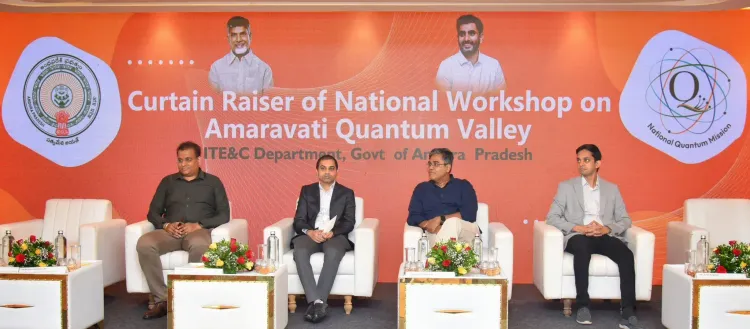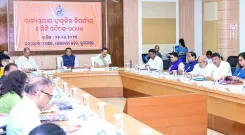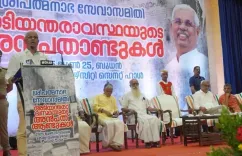Will India's First Quantum Valley in Andhra Pradesh Transform Technology by January 2026?

Synopsis
Key Takeaways
- Andhra Pradesh is launching India's first Quantum Valley by January 2026.
- The initiative aims to integrate hardware, software, and research capabilities.
- Collaboration with global leaders like IBM and TCS is key to the project.
- The Quantum Valley will support startups and researchers nationwide.
- Significant advancements in sectors like pharma and cybersecurity are anticipated.
Vijayawada, June 25 (NationPress) Andhra Pradesh is set to unveil India’s inaugural full-stack Quantum Valley in Amaravati by January 2026. This initiative will integrate hardware, software, talent, and research capabilities, as confirmed by officials on Wednesday.
This groundbreaking project aims to establish India’s first dedicated quantum computing and deep tech ecosystem, in collaboration with global tech giants like IBM and Tata Consultancy Services (TCS).
With this development, Andhra Pradesh will become the first Indian state to create a comprehensive quantum infrastructure encompassing hardware, software, algorithms, materials, and talent cultivation. The quantum facility will be remotely accessible across India, catering to startups, researchers, and students alike.
Experts predict that quantum technology will revolutionize crucial sectors such as pharmaceuticals, agriculture, cybersecurity, and finance, with significant support for innovation hubs and job creation.
An Amaravati Quantum workshop, themed ‘Envisioning Amaravati as a Global Capital for Quantum Technologies,’ is scheduled for June 30 in Vijayawada. This event will feature global stakeholders including IBM, TCS, the US Consulate, NITI Aayog, and IITs.
Chief Minister N. Chandrababu Naidu will give a keynote speech and unveil the Amaravati Declaration, outlining the state’s vision for quantum technology.
The full-day workshop aims to unite leading national and international stakeholders to define the future of quantum technologies.
The Department of Information Technology, Electronics and Communications (ITE and C) of the Government of Andhra Pradesh organized a Curtain Raiser event to gather key government figures, industry leaders, and research experts who are pivotal in shaping India’s quantum future.
P. S. Pradyumna, Secretary to the Chief Minister, emphasized the government’s dedication to quantum computing, highlighting its exponential speed advantage over classical systems. “Quantum is a transformative technology expected to scale rapidly by 2030. Numerous companies are already moving towards quantum-secured systems,” he stated.
He pointed out the benefits for Andhra Pradesh’s pharmaceutical industry, indicating that quantum simulations could accelerate drug discovery by modeling molecular structures.
Bhaskar Katamneni, Secretary of the ITE and C Department, noted that Andhra Pradesh is the first state in India to undertake such a comprehensive initiative.
“Numerous applications will operate on the Amaravati quantum system, and we are developing an ecosystem that allows industries to present their challenges and develop algorithms using our facility. By January 2026, this will be India’s first full-stack quantum infrastructure, accessible remotely to users nationwide. We anticipate that 90,000 to 100,000 individuals will benefit from this system,” he said.
Addressing concerns regarding automation, he clarified that quantum computing will not replace humans. Classical computing will continue to be relevant, with quantum serving as a complement.
Prof. Anil Prabhakar from IIT Madras, an advisor at TCS and a quantum communications expert, elaborated on the capabilities of quantum computing. “Unlike traditional systems, quantum computers can tackle previously unsolvable problems. IBM is a global leader, and by 2024-25, we anticipate 1,000-qubit systems. Others are swiftly catching up,” he mentioned.
He outlined significant applications such as cryptography, route optimization, battery design, materials science, bin packing, image classification, drug discovery, protein folding (via ion-trap computers), and cybersecurity. “The Amaravati Quantum Valley will provide both academia and industry access to these powerful tools,” he stated.
Dr. Amith Singhee, Director of IBM Research India and CTO of IBM India and South Asia, expressed their ambition to deliver impactful quantum computing solutions globally. “With Andhra Pradesh’s commitment, we aim to develop robust applications and algorithms over the next 3-4 years, with Amaravati achieving key development milestones by 2029.”






